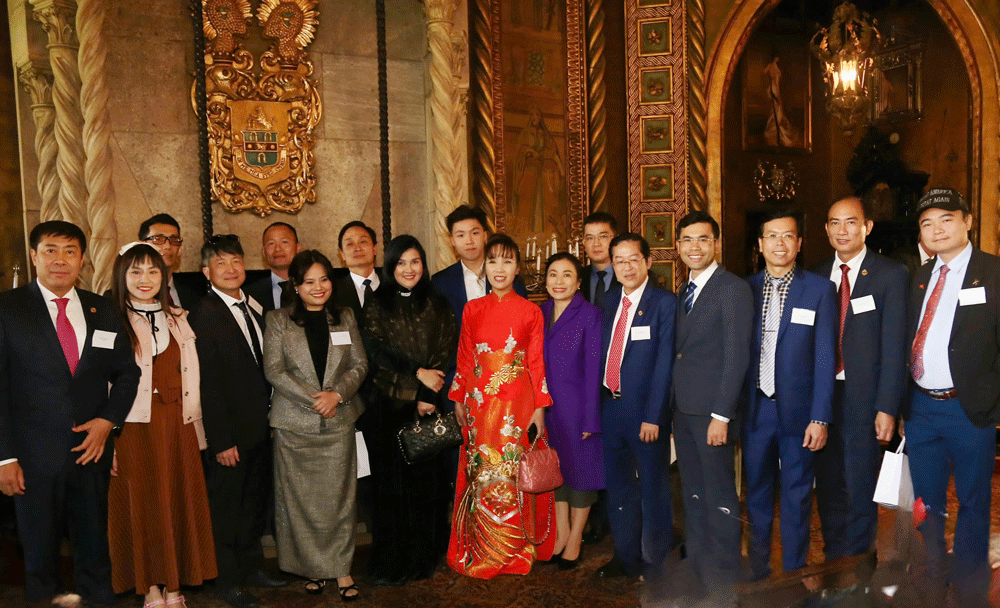
Nguyen Thi Phuong Thao, billionaire founder and chairwoman of Vietjet, recently met with strategic partners from around the world in the U.S. during the "Friends of Vietnam Summit" at Mar-a-Lago, the estate of former President Donald Trump, from January 9 to 11.
This significant event highlights the strengthening of U.S.-Vietnam ties and comes at a pivotal time as Donald Trump signals a possible return to the White House.
Strengthened bilateral and business relations
During the summit, Vietjet and other Vietnamese entities engaged with key U.S. partners to enhance bilateral and multilateral cooperation.
Thao has a long history of high-profile engagements with Trump, including his 2017 visit to Vietnam, during which Vietjet signed a historic deal with Boeing to purchase 100 737 Max aircraft. That deal was later expanded to 200 planes, with 14 scheduled for delivery in 2025.
Vietjet also has strategic agreements with leading U.S. companies such as Boeing, GE, Pratt & Whitney, and Honeywell, totaling nearly $50 billion. Additional collaborations worth $14 billion are under discussion, creating approximately 500,000 U.S. jobs.
In the technology sector, Vietjet is in talks with SpaceX and leading companies like Microsoft, Amazon, Apple, and Google to integrate cutting-edge solutions, including in-flight internet services and advanced workforce training.
Economic and trade implications
Thao's high-profile deals underscore Vietnam’s role in balancing trade relations with the U.S. In 2024, bilateral trade reached over $132 billion, with Vietnam exporting nearly $119 billion worth of goods - a 23.3% increase from the previous year.
While U.S. consumers show growing preference for Vietnamese products, the trade surplus poses risks of higher tariffs. Large-scale purchases of U.S. goods, such as aircraft and technology, help mitigate these risks and foster goodwill.
Experts emphasize the need to encourage Vietnamese businesses to import high-quality U.S. products, balancing trade and enhancing domestic economic prospects. Partnerships with U.S. leaders in aerospace, renewable energy, and semiconductors align with Vietnam’s development goals, further solidifying ties.
Vietjet, Vietnam’s first private airline, has grown from operating three aircraft to managing a fleet of 115 modern, fuel-efficient planes, with over 400 more on order. The upcoming delivery of advanced U.S. aircraft represents a major step in supporting Vietnam’s sustainable aviation growth and global connectivity.
Looking ahead, Vietjet aims to remain a cost-efficient airline providing high-quality services while fostering cultural and business exchanges between nations. This reflects its broader mission to serve as a bridge connecting people, opportunities, and cultures across the globe.
Manh Ha